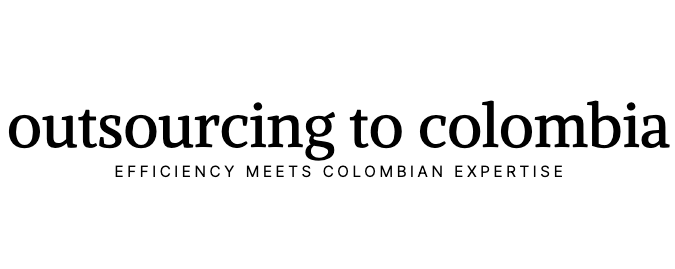1. Tax Obligations
Colombia’s tax system is complex, and companies must comply with various tax requirements. Below are the primary tax obligations for 2025:
a. Income Tax
Companies are required to file and pay income tax annually. The standard corporate income tax rate in Colombia is 35% for 2025.
Businesses must submit their income tax return (Declaración de Renta) electronically through the DIAN (Dirección de Impuestos y Aduanas Nacionales) portal.
b. Value-Added Tax (VAT)
VAT (Impuesto al Valor Agregado) is charged at a rate of 19% on most goods and services.
Companies must file monthly VAT returns and pay the corresponding amount to DIAN.
c. Industry and Commerce Tax (ICA)
The ICA is a municipal tax levied on commercial, industrial, or service-related activities. Rates vary depending on the municipality and the type of business.
Businesses must register with the local chamber of commerce and file ICA returns periodically.
d. Withholding Taxes
Companies must withhold taxes on payments made to employees, contractors, and suppliers. These include income tax, VAT, and other applicable withholdings.
Withholding tax rates vary depending on the type of payment and the recipient’s tax status.
e. Digital Services Tax (DST)
Starting in 2025, Colombia may implement a Digital Services Tax for foreign companies providing digital services to Colombian residents. Businesses should monitor updates from DIAN to ensure compliance.
2. Labor and Social Security Obligations
Colombia has strict labor laws designed to protect workers’ rights. Companies must adhere to the following:
a. Employee Registration
All employees must be registered with the social security system, which includes health insurance (EPS), pension funds, and occupational risks (ARL).
b. Payroll Obligations
Companies must calculate and pay salaries, benefits, and mandatory contributions such as:
Health Contributions: 12.5% of the employee’s salary (8.5% paid by the employer, 4% by the employee).
Pension Contributions: 16% of the employee’s salary (12% paid by the employer, 4% by the employee).
Severance Fund (Cesantías): 8.33% of the employee’s salary, paid annually or monthly.
Interest on Severance Fund: 1% of the severance fund, paid annually.
c. Labor Contracts
Companies must formalize employment relationships with written contracts that comply with Colombian labor laws. Contracts must specify job duties, salary, working hours, and benefits.
d. Workplace Safety
Employers must provide a safe working environment and comply with occupational health and safety regulations. This includes conducting risk assessments and providing training to employees.
3. Corporate Governance and Compliance
a. Annual Financial Statements
Companies must prepare and submit annual financial statements to the Superintendencia de Sociedades (Superintendence of Companies) and DIAN. These statements must comply with Colombian accounting standards.
b. Corporate Tax Residency
Companies incorporated in Colombia are considered tax residents and must report worldwide income. Foreign companies with a permanent establishment in Colombia must also comply with local tax laws.
c. Anti-Money Laundering (AML) Compliance
Companies must implement AML policies and procedures to prevent money laundering and terrorist financing. This includes verifying customer identities, reporting suspicious transactions, and maintaining records.
d. Data Protection
Under Colombia’s Data Protection Law (Ley 1581 de 2012), companies must protect personal data collected from customers, employees, and suppliers. This includes obtaining consent, ensuring data security, and appointing a data protection officer if required.
4. Environmental Obligations
Colombia has stringent environmental regulations to promote sustainability. Companies must:
Obtain environmental licenses for projects that may impact natural resources.
Comply with waste management and pollution control regulations.
Report environmental performance to the relevant authorities, such as the Ministry of Environment and Sustainable Development.
5. E-Invoicing and Digital Compliance
Starting in 2025, Colombia is expected to fully implement mandatory e-invoicing for all businesses. Companies must:
Use authorized software to issue electronic invoices.
Ensure invoices comply with DIAN’s technical and legal requirements.
Submit electronic invoices to DIAN for validation and archiving.
6. Special Obligations for Foreign Companies
Foreign companies operating in Colombia must also:
Register with the Chamber of Commerce and obtain a tax ID (NIT).
Appoint a legal representative in Colombia.
Comply with foreign investment regulations and report financial transactions to the Central Bank (Banco de la República).
Conclusion
Navigating the regulatory landscape in Colombia can be challenging, but compliance is essential for the success and sustainability of your business. By understanding and fulfilling your obligations in 2025, you can avoid penalties, build trust with stakeholders, and contribute to Colombia’s growing economy.
If you’re unsure about any of these requirements or need assistance navigating Colombia’s regulatory landscape, consider reaching out to the experts at Outsourcing to Colombia. Their team of local legal, tax, and compliance professionals can help ensure your business remains compliant while saving you time and resources. Staying proactive and informed is the key to thriving in Colombia’s dynamic business environment, and partnering with the right experts can make all the difference.













